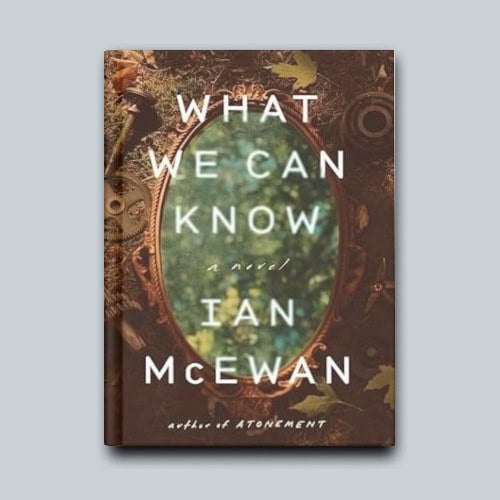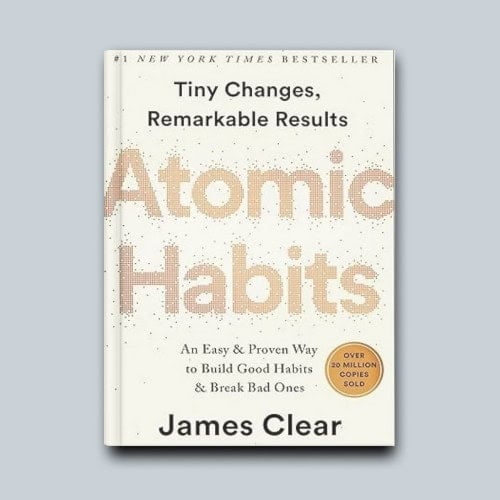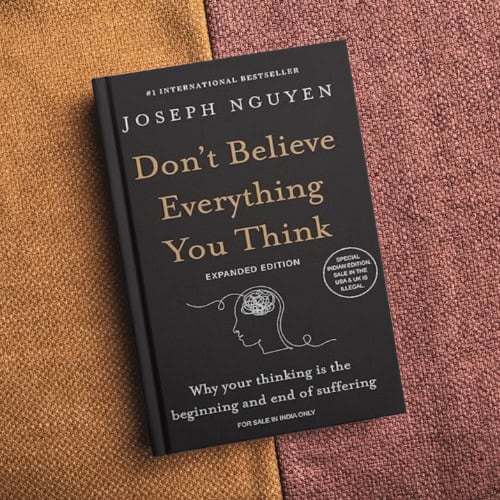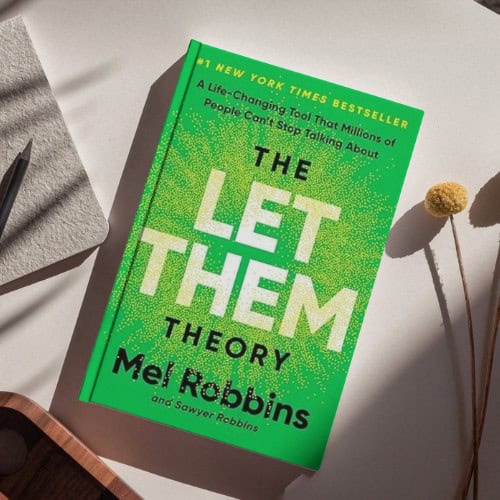Ian McEwan’s work, “What We Can Know,” delves into the complexities of human understanding, exploring the realms of epistemology and its intersection with philosophy. This thought-provoking piece invites readers to consider the boundaries of knowledge and how it shapes our perceptions.
By examining the intricacies of human cognition and the factors influencing our beliefs, McEwan provides a nuanced exploration of what it means to truly know something. This inquiry is both timely and timeless, offering insights into the human condition.
Key Takeaways
- Exploration of epistemology and its significance in understanding human knowledge.
- Insights into how philosophy influences our perception of reality.
- Discussion on the limitations and complexities of human cognition.
- The role of belief in shaping our understanding of the world.
- Reflection on the human condition through the lens of McEwan’s work.
The Literary Journey of “What We Can Know”
‘What We Can Know’ represents a crucial chapter in the ongoing narrative of Ian McEwan’s literary endeavors. Since its release, the book has been a subject of interest among literary critics and readers alike, sparking discussions on its themes and ideas.
Genesis and Publication History
The genesis of “What We Can Know” is rooted in Ian McEwan’s long-standing fascination with the intersection of science, philosophy, and literature. The book was published in [Year] by [Publisher], marking another significant release in McEwan’s bibliography.
McEwan’s process of writing “What We Can Know” involved extensive research into various disciplines, reflecting his commitment to exploring complex ideas through his work.
| Publication Details | Information |
|---|---|
| Publication Year | [Year] |
| Publisher | [Publisher] |
Initial Reception and Critical Response
The initial reception of “What We Can Know” was met with a mixture of acclaim and critical scrutiny. Reviewers praised McEwan’s thought-provoking exploration of epistemological themes, while some critiqued the complexity of the ideas presented.
Critics noted that McEwan’s work continues to challenge readers, encouraging a deeper engagement with the subjects discussed. The critical response highlighted the book’s contribution to contemporary debates on knowledge and understanding.
- Critics praised the book’s thematic depth.
- Readers appreciated McEwan’s accessible style.
- The book was recognized for its intellectual rigor.
Ian McEwan: The Author Behind the Philosophy
Delving into the mind of Ian McEwan reveals a complex interplay between his literary work and philosophical inclinations. To fully appreciate the depth of “What We Can Know,” it’s crucial to understand McEwan’s literary journey and the intellectual influences that have shaped his writing.
McEwan’s Literary Evolution and Career
Ian McEwan’s literary career spans several decades, during which he has evolved from a writer of dark, introspective novels to a author deeply engaged with the philosophical and scientific communities. His early works, such as “The Cement Garden” and “The Comfort of Strangers,” showcased his ability to craft compelling narratives that explored the human psyche. Over time, McEwan’s writing has become increasingly influenced by his interests in science, philosophy, and politics, as seen in works like “Solar” and “Machines Like Me.”
Key milestones in McEwan’s career include:
- Early recognition for his short stories and novels that often explored themes of psychological complexity.
- A shift towards more overtly philosophical and scientifically informed themes in his later works.
- Engagement with contemporary issues, such as climate change and the ethics of artificial intelligence.
Intellectual Influences Shaping McEwan’s Worldview
McEwan’s worldview has been shaped by a variety of intellectual influences, ranging from the scientific community to philosophical thought. His work often reflects a deep engagement with the ideas of scientists and thinkers such as Richard Dawkins and Steven Pinker. The influence of rationalism and empiricism is evident in his approach to understanding human nature and the world around us.
Some of the key intellectual influences on McEwan include:
- The scientific method and its application to understanding human behavior.
- Philosophical debates around the nature of knowledge and reality.
- Literary and intellectual figures who have shaped his perspective on the human condition.
What We Can Know — Ian McEwan’s Central Thesis
McEwan’s latest book, “What We Can Know,” delves into the complexities of epistemology, challenging readers to rethink their assumptions. This work is a culmination of McEwan’s intellectual curiosity and his desire to explore the boundaries of human knowledge.
The Epistemological Framework Presented
McEwan constructs an epistemological framework that is both nuanced and accessible. He draws on a wide range of philosophical and scientific sources to create a comprehensive understanding of how we acquire knowledge. By examining the processes of perception, cognition, and reasoning, McEwan sheds light on the intricate mechanisms that underlie human understanding.
The framework presented is not merely theoretical; it has practical implications for how we navigate the world. McEwan illustrates how our understanding of the world is filtered through various cognitive biases and limitations, affecting our certainty about what we know.
Knowledge vs. Certainty in McEwan’s Perspective
In “What We Can Know,” McEwan makes a critical distinction between knowledge and certainty. He argues that while we can possess knowledge, our certainty about that knowledge is always subject to revision. This perspective challenges the notion of absolute certainty, instead advocating for a more nuanced understanding of knowledge as provisional and context-dependent.
McEwan’s discussion on the interplay between knowledge and certainty has significant implications for various domains, from science and philosophy to everyday decision-making. By recognizing the difference between knowing something and being certain about it, we can foster a more open and inquiring mindset.
The Structure and Style of “What We Can Know”
“What We Can Know” by Ian McEwan is distinguished by its thoughtful structure and distinctive literary style, making complex philosophical ideas accessible. McEwan’s use of narrative techniques and literary devices creates a rich tapestry that explores the depths of human knowledge and understanding.
Narrative Techniques and Literary Devices
McEwan employs a range of narrative techniques to convey his epistemological themes. One of the key devices used is metaphor, which serves to illustrate complex ideas in a more relatable form.
Metaphor and Symbolism
Metaphors and symbolism are used throughout the text to represent abstract concepts, making them more tangible for the reader. For example, McEwan uses the metaphor of a journey to describe the pursuit of knowledge, highlighting the challenges and uncertainties involved.
Prose Style and Accessibility
McEwan’s prose style is characterized by its clarity and accessibility. He avoids overly technical language, making the text approachable for a broad audience. This is crucial in conveying complex philosophical ideas without alienating readers.
McEwan’s Distinctive Voice and Tone
McEwan’s voice and tone are integral to the narrative, providing a consistent perspective through which the reader experiences the exploration of knowledge and certainty. His tone is reflective and inquiring, encouraging readers to engage deeply with the subject matter.
| Literary Device | Example | Purpose |
|---|---|---|
| Metaphor | The pursuit of knowledge as a journey | To illustrate the challenges and progression in understanding |
| Symbolism | Use of light and darkness | To represent knowledge and ignorance |
| Prose Style | Clear and concise language | To make complex ideas accessible |
Science and Rationality: McEwan’s Intellectual Foundations
McEwan’s exploration of human knowledge is characterized by a strong adherence to rationality and scientific inquiry. This foundation is crucial in understanding his philosophical stance and literary approach.
The Role of Scientific Thinking in the Text
Scientific thinking plays a pivotal role in McEwan’s work, influencing both the narrative structure and the thematic exploration. Two key aspects of this influence are evidence-based reasoning and the scientific method as a model for knowledge.
Evidence-Based Reasoning
McEwan emphasizes the importance of grounding beliefs and actions in empirical evidence. This approach is reflected in his characters’ decision-making processes and the way they navigate complex situations.
Scientific Method as a Model for Knowledge
The scientific method, with its systematic observation, hypothesis formulation, and experimentation, serves as a paradigm for acquiring knowledge. McEwan’s work often illustrates the application of this method in understanding human behavior and the natural world.
Challenging Pseudoscience and Magical Thinking
McEwan is also known for challenging pseudoscientific and magical thinking, advocating for a rational worldview. This is evident in his critique of unfounded beliefs and the promotion of critical thinking.
| Aspect | Scientific Thinking | Pseudoscience/Magical Thinking |
|---|---|---|
| Evidence | Empirical, verifiable | Anecdotal, unsubstantiated |
| Methodology | Systematic, rigorous | Unsystematic, lacking rigor |
| Outcomes | Reliable, testable predictions | Unpredictable, untestable claims |
By contrasting scientific thinking with pseudoscientific and magical thinking, McEwan underscores the importance of a rational and evidence-based approach to understanding the world.
The Limits of Human Understanding
Ian McEwan’s exploration in “What We Can Know” delves into the complexities of human understanding, revealing its inherent limitations. As we navigate the intricacies of knowledge, we encounter various obstacles that impede our comprehension.
Cognitive Biases and Perceptual Limitations
One of the primary constraints on human understanding is the presence of cognitive biases, which distort our perception of reality. These biases, often operating subconsciously, can lead to flawed decision-making and a skewed interpretation of information. McEwan highlights the importance of recognizing these biases, encouraging readers to adopt a more nuanced and critical approach to knowledge.
- Cognitive biases affect our judgment and decision-making processes.
- Perceptual limitations further restrict our understanding, as our senses can be deceived or misled.
- Awareness of these limitations is crucial for a more accurate comprehension of the world.
The Humility of Not Knowing
McEwan’s work also emphasizes the value of humility in the face of uncertainty. Acknowledging the limits of our knowledge can be a liberating experience, allowing us to approach complex issues with a more open and inquiring mindset.
Embracing Uncertainty
By embracing uncertainty, we can foster a deeper understanding of the world around us. This involves recognizing the provisional nature of knowledge and being willing to revise our beliefs in light of new information.
The Beauty in Mystery
The acknowledgment of mystery can also reveal a profound beauty, as we confront the limits of our understanding. This beauty lies not in the answers we have, but in the questions we are willing to ask.
The beauty in mystery is a theme that resonates throughout McEwan’s work, inviting readers to contemplate the complexities and mysteries of human existence.
Moral and Ethical Dimensions in “What We Can Know”
Ian McEwan’s “What We Can Know” delves into the complex interplay between knowledge and moral responsibility, prompting a critical examination of how we understand and utilize knowledge.
The exploration of moral and ethical dimensions is a crucial aspect of McEwan’s work, as it challenges readers to consider the implications of their knowledge and the consequences of their actions.
Knowledge as Ethical Responsibility
McEwan posits that knowledge is not merely a possession but an ethical responsibility. Having knowledge implies a duty to use it wisely and for the greater good. This perspective is reflected in his discussion on the importance of critical thinking and rational inquiry.
- The ethical use of knowledge requires a deep understanding of its implications.
- McEwan emphasizes the need for accountability in the application of knowledge.
- The responsibility that comes with knowledge is a recurring theme in his work.
The Moral Implications of Ignorance and Denial
Conversely, McEwan also explores the moral implications of ignorance and denial, highlighting how these states can lead to harmful consequences. By examining the effects of willful ignorance and denial, McEwan underscores the importance of acknowledging and confronting reality.
The moral implications of such states are multifaceted, involving not just personal but also societal consequences. McEwan’s work encourages readers to reflect on their own knowledge and the ethical dimensions of their understanding.
“What We Can Know” in Context of McEwan’s Bibliography
McEwan’s ‘What We Can Know’ is not an isolated work; rather, it is part of a continuum of literary and philosophical exploration that characterizes his oeuvre. To understand its significance, it’s crucial to situate it within the broader context of his bibliography.
Thematic Connections to Earlier Works
Upon examination, it becomes clear that ‘What We Can Know’ shares thematic connections with several of McEwan’s earlier works. For instance, his novel ‘Saturday’ explores the intersection of science, morality, and the human condition, themes that are revisited in ‘What We Can Know.’ The nuanced exploration of human understanding in both works underscores McEwan’s consistent interest in epistemological questions. As McEwan himself notes,
“The task of understanding is not to arrive at a fixed destination but to navigate the complexities of human knowledge.”
Evolution of McEwan’s Philosophical Stance
Over the course of his career, McEwan’s philosophical stance has evolved significantly. From the existential inquiries in his early novels to the more nuanced discussions of science and rationality in his later works, McEwan’s writing reflects a deepening engagement with philosophical issues. ‘What We Can Know’ represents a culmination of this evolution, offering a mature reflection on the limits and possibilities of human understanding. As such, it stands as a testament to McEwan’s ongoing philosophical exploration.
Cultural Impact and Relevance in Today’s World
The cultural relevance of ‘What We Can Know’ is underscored by its timely exploration of post-truth politics and information overload. Ian McEwan’s work resonates deeply with contemporary epistemological crises, making it a significant contribution to ongoing discussions.
Addressing Contemporary Epistemological Crises
McEwan tackles the pressing issues of our time, including the erosion of trust in institutions and the proliferation of misinformation.
Post-Truth Politics
The phenomenon of post-truth politics is a critical area of focus. McEwan examines how the disregard for factual accuracy has led to a fragmented understanding of reality.
Information Overload and Discernment
In an era where information is abundant, discerning fact from fiction has become increasingly challenging. McEwan’s work encourages readers to critically evaluate the information they consume.
| Key Issues | McEwan’s Perspective |
|---|---|
| Post-Truth Politics | Critical examination of factual disregard |
| Information Overload | Encourages critical discernment |
McEwan’s Contribution to Public Discourse
By engaging with complex epistemological questions, McEwan enriches public discourse, fostering a more nuanced understanding of knowledge and its limitations.
His work has a lasting impact on how we think about the role of knowledge in society, promoting a culture of critical inquiry and intellectual humility.
Reader Responses and Personal Reflections
Readers have been deeply engaged by the philosophical and scientific inquiries presented in ‘What We Can Know’ by Ian McEwan. The book has elicited a wide range of responses, from academic analyses to personal reflections on its themes and arguments.
Academic and Literary Analysis
Academics and literary critics have scrutinized McEwan’s work for its nuanced exploration of epistemology. They have analyzed the text’s structure, noting how McEwan weaves together historical anecdotes, scientific explanations, and philosophical debates to challenge readers’ understanding of knowledge and certainty.
- The use of narrative techniques to convey complex ideas has been particularly praised.
- Critics have also highlighted McEwan’s critique of pseudoscience and magical thinking.
How “What We Can Know” Changes Our Thinking
‘What We Can Know’ prompts readers to reevaluate their assumptions about the nature of knowledge and belief. By exploring the intersections of science, philosophy, and history, McEwan encourages a more nuanced understanding of what it means to know something.
| Aspect | Pre-Reading Perspective | Post-Reading Perspective |
|---|---|---|
| Certainty | Often seen as absolute | Recognized as contextual and probabilistic |
| Knowledge | Viewed as static | Understood as dynamic and evolving |
| Science | Perceived as separate from other disciplines | Seen as interconnected with philosophy and history |
Conclusion: The Enduring Significance of McEwan’s Exploration
Ian McEwan’s “What We Can Know” presents a thought-provoking exploration of the limits and possibilities of human understanding. Through his examination of the interplay between science, rationality, and morality, McEwan sheds light on the complexities of knowledge and certainty.
McEwan’s exploration has enduring significance as it challenges readers to confront their own cognitive biases and perceptual limitations. By engaging with the ideas presented in “What We Can Know,” readers can develop a deeper understanding of the importance of intellectual humility and the need for ongoing critical inquiry.
The conclusion of McEwan’s work underscores the value of nuanced thinking in addressing contemporary epistemological crises. As we navigate an increasingly complex world, McEwan’s insights offer a valuable framework for evaluating the role of knowledge and certainty in our personal and public lives.







